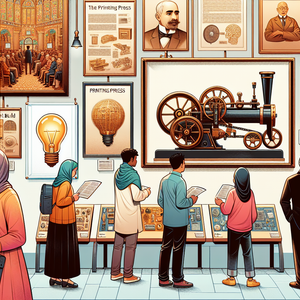The Human Touch in an Automated World

Over the years, advancements in automation and AI have fundamentally transformed HR practices. Tasks that once consumed hours of manual effort—such as resume screening, benefits administration, and performance tracking—are now completed in minutes by AI-powered systems. These technologies bring remarkable benefits: improved efficiency, lower costs, and more accurate decision-making. For example, applicant tracking systems (ATS) enable recruiters to sift through thousands of resumes in seconds, identifying candidates with the desired skills and qualifications. AI tools like chatbots can handle routine employee inquiries, such as those related to leave policies or benefits, freeing HR professionals to focus on more strategic initiatives. Predictive analytics tools can even assess workplace trends, such as identifying employees at risk of burnout or turnover, allowing organizations to proactively address issues before they escalate. However, as automation continues to streamline processes, it raises an important question: what happens to the human-centric aspects of HR? Can algorithms truly replace the emotional intelligence, creativity, and personal connection that define human interactions?
The Irreplaceable Human Touch
While technology offers numerous advantages, there are certain aspects of HR where the human touch remains indispensable. These include empathy, conflict resolution, and the cultivation of organizational culture—areas where emotional intelligence and social understanding are paramount.
Empathy and Emotional Intelligence
One of the greatest strengths of human HR professionals is their ability to connect with others on an emotional level. Empathy is crucial in moments of vulnerability, whether it’s addressing an employee’s mental health concerns, supporting someone during a personal crisis, or conducting difficult conversations about layoffs or performance issues. AI may be able to analyze data patterns and detect declining productivity, but it cannot sit across the table from an employee, listen to their struggles, and offer genuine support. Consider an employee experiencing burnout. While an AI system might flag their declining output as a problem, only a human HR professional can engage in a meaningful conversation, uncover the root causes, and develop a personalized solution—whether that’s adjusting workloads, providing mental health resources, or simply offering a compassionate ear.
Conflict Resolution
Workplace conflicts are inevitable, arising from differences in personalities, communication styles, or competing priorities. Successfully resolving these disputes requires a deep understanding of human behavior, active listening, and the ability to mediate in a way that fosters trust and collaboration. For example, imagine a disagreement between two team members over project responsibilities. While an AI system might suggest general strategies, such as team-building workshops, it takes a skilled HR professional to navigate the emotions and unique dynamics at play. They can identify the underlying issues, facilitate open dialogue, and craft a resolution that strengthens relationships rather than deepening divisions.
Building and Sustaining Organizational Culture
Perhaps the most profound role of HR professionals is in shaping and sustaining an organization’s culture. Organizational culture encompasses the shared values, behaviors, and goals that define a workplace. It is not something that can be fully quantified or programmed into an algorithm—culture is built through human interactions and intentional leadership. For example, many companies today prioritize diversity, equity, and inclusion (DEI) initiatives. While AI can help reduce bias in hiring or track progress on diversity metrics, it is the human HR team that creates meaningful programs, organizes cultural celebrations, and ensures that DEI principles are embedded in the company’s everyday practices. Employees want to feel valued, heard, and included—an outcome that requires HR professionals to go beyond data and connect on a personal level.
The Future of HR: A Collaborative Partnership
Rather than viewing automation as a threat, HR professionals can harness it as a tool to enhance their work. By automating repetitive and time-consuming tasks, technology allows HR teams to focus on strategic priorities that require creativity, critical thinking, and human insight. For instance, AI-powered platforms can streamline recruitment by identifying candidates who meet specific qualifications. However, the final decision about a candidate’s cultural fit and interpersonal skills remains a distinctly human responsibility. Similarly, while AI can analyze employee engagement surveys and provide actionable insights, it is the HR team that must interpret these insights and implement meaningful changes to improve workplace satisfaction. This collaboration between humans and technology is key to the future of HR. By leveraging AI to handle administrative functions, HR professionals can redefine their roles as strategic leaders who drive organizational success through human connection.
The rise of automation in HR has undoubtedly transformed the field, making processes more efficient, data-driven, and scalable. Yet, the human touch remains indispensable. Empathy, conflict resolution, and the ability to cultivate a thriving organizational culture are qualities that no machine can replicate. As technology continues to advance, HR professionals have a unique opportunity to evolve their roles—not as task managers or administrators, but as strategic leaders who bring humanity to the workplace. By embracing a collaborative partnership between humans and technology, HR can strike a balance between efficiency and empathy, ensuring that the workplace of the future remains a place of connection, inclusion, and growth. In a rapidly automated world, the value of human connection cannot be overstated. As we look to the future, it is clear that the human touch in HR will not only survive but thrive—serving as a critical anchor in a sea of technological change.
HR Data Analyst
Deloitte, IBM, and Accenture
Responsibilities
Analyze workforce data to identify trends, such as employee turnover or productivity patterns.
Collaborate with HR teams to create data-driven strategies for recruitment, retention, and engagement.
Develop predictive models using HR analytics tools to forecast workplace needs and risks.
Skills & Qualifications
Proficiency in data visualization tools (e.g., Tableau, Power BI) and HR software like Workday or SAP SuccessFactors.
Strong understanding of statistics, predictive analytics, and workforce metrics.
Frequently hired by organizations like Deloitte, IBM, and Accenture.
AI Integration Specialist in HR
Amazon, Microsoft, and HR tech providers
Responsibilities
Implement AI tools such as applicant tracking systems, chatbots, or performance management platforms.
Train HR teams to effectively use automated systems while ensuring compliance with ethical guidelines.
Monitor and optimize the performance of HR tech solutions to meet organizational goals.
Skills & Qualifications
Technical expertise in AI platforms (e.g., Oracle HCM Cloud, Eightfold AI).
Experience in HR process improvement and change management.
Typically employed by companies like Amazon, Microsoft, and HR tech providers.
Employee Experience Manager
Google, Salesforce, and LinkedIn
Responsibilities
Lead initiatives to improve employee engagement, satisfaction, and overall workplace culture.
Develop and execute programs for onboarding, professional development, and recognition.
Act as a liaison between employees and leadership to ensure open communication and support.
Skills & Qualifications
Strong background in organizational psychology or talent management.
Exceptional communication and conflict-resolution skills.
Common employers include Google, Salesforce, and LinkedIn.
Diversity, Equity, and Inclusion (DEI) Program Manager
Facebook (Meta), Nike, and government agencies
Responsibilities
Design and implement DEI initiatives, such as diverse hiring practices and inclusive workplace policies.
Conduct training programs on unconscious bias, cultural awareness, and inclusive leadership.
Measure the effectiveness of DEI efforts through metrics and employee feedback.
Skills & Qualifications
Expertise in DEI frameworks and familiarity with anti-bias tools like Textio or Pymetrics.
Experience in advocacy, coaching, and facilitating difficult conversations.
Employers like Facebook (Meta), Nike, and government agencies prioritize this role.
HR Technology Consultant
Mercer, Korn Ferry, or PwC
Responsibilities
Advise organizations on selecting and implementing HR technologies to streamline operations.
Conduct audits of existing HR tech stacks and recommend improvements.
Provide training and support to ensure seamless adoption of new systems.
Skills & Qualifications
Deep knowledge of HRIS platforms (e.g., BambooHR, ADP) and integration processes.
Project management skills, ideally with certifications like PMP or Agile.
Often employed by HR consulting firms such as Mercer, Korn Ferry, or PwC.


